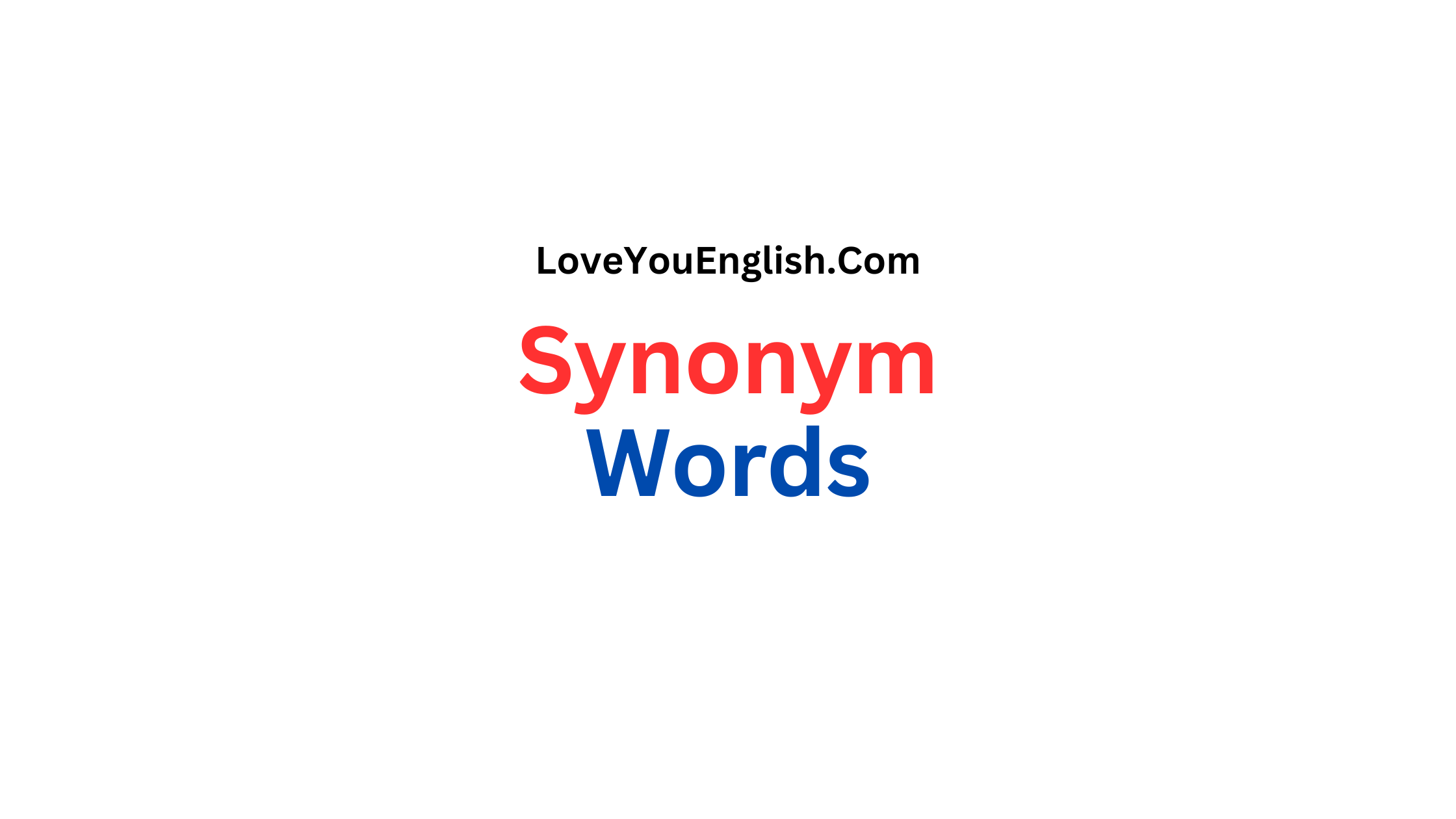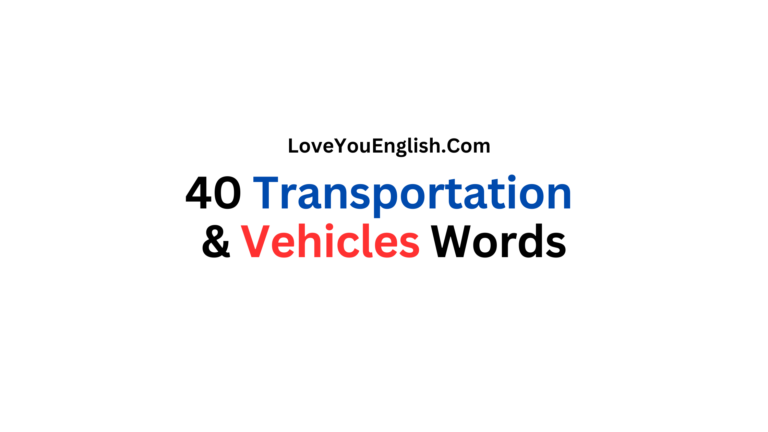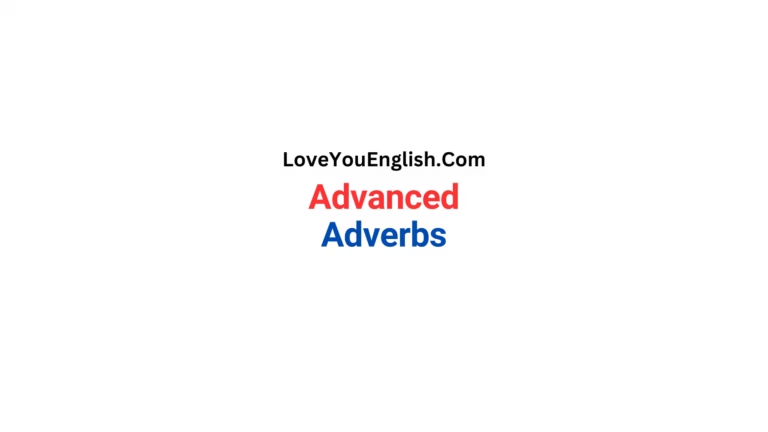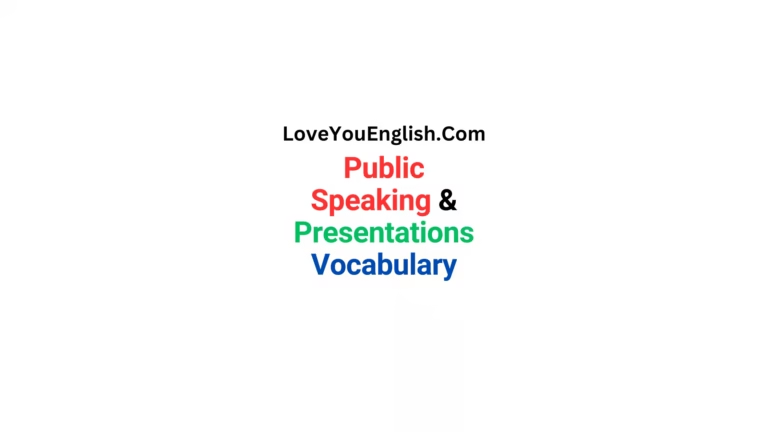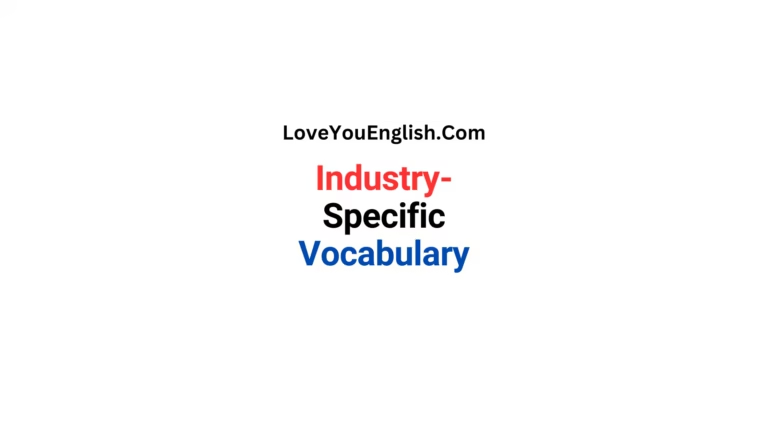100 Synonym Words to Enrich Your Vocabulary
Sharing is caring!
Words are like the bricks that make up language, and having a big vocabulary lets you share your thoughts more clearly and powerfully.
A fun way to learn more words is by discovering synonyms, which are words that mean the same or almost the same thing.
In this post, we will look at 100 everyday words and their synonyms, so you can make your speaking and writing more interesting.
What are synonyms?
Synonyms are words that mean the same thing or nearly the same thing as another word.
For example, “big” and “large” are synonyms because they both describe something of great size.
Using synonyms can make your language more interesting and help you avoid repeating the same word too often.
Let’s dive into our list of 100 words and their synonyms, grouped into categories for easier learning:
Describing Size and Quantity:
Big: large, huge, enormous, gigantic, massive
Small: tiny, little, miniature, petite, microscopic
Many: numerous, several, various, multiple, abundant
Few: scarce, rare, limited, scant, sparse
Describing Emotions:
Happy: joyful, cheerful, delighted, elated, ecstatic
Sad: unhappy, gloomy, depressed, melancholy, sorrowful
Angry: mad, furious, enraged, irate, livid
Scared: frightened, terrified, fearful, anxious, alarmed
Describing Speed:
Fast: quick, rapid, swift, speedy, hasty
Slow: sluggish, leisurely, unhurried, gradual, plodding
Describing Temperature:
Hot: warm, scorching, sizzling, sweltering, boiling
Cold: chilly, frigid, frosty, icy, freezing
Describing Intelligence:
Smart: intelligent, clever, bright, brilliant, wise
Stupid: dumb, foolish, idiotic, moronic, dense
Describing Appearance:
Beautiful: pretty, gorgeous, attractive, stunning, lovely
Ugly: unattractive, hideous, unsightly, grotesque, homely
Thin: slim, slender, skinny, lean, svelte
Fat: overweight, obese, chubby, plump, rotund
Describing Importance:
Important: crucial, essential, vital, significant, key
Unimportant: trivial, insignificant, minor, negligible, inconsequential
Describing Difficulty:
Easy: simple, effortless, straightforward, uncomplicated, painless
Difficult: hard, challenging, tough, complicated, arduous
Describing Frequency:
Often: frequently, regularly, repeatedly, habitually, routinely
Seldom: rarely, infrequently, occasionally, sporadically, hardly ever
Describing Taste:
Delicious: tasty, yummy, scrumptious, flavorful, appetizing
Disgusting: nasty, revolting, repulsive, gross, nauseating
Describing Sound:
Loud: noisy, deafening, thunderous, booming, ear-splitting
Quiet: silent, hushed, muted, subdued, noiseless
Describing Cleanliness:
Clean: spotless, pristine, immaculate, hygienic, sterile
Dirty: filthy, grimy, soiled, unclean, squalid
Describing Age:
Old: ancient, elderly, aged, senior, antique
Young: youthful, juvenile, adolescent, immature, fresh
Describing Weather:
Sunny: bright, radiant, clear, fair, cloudless
Rainy: wet, damp, drizzly, showery, stormy
Describing Time:
Early: prompt, timely, punctual, ahead, premature
Late: tardy, overdue, delayed, behind, belated
Describing Movement:
Walk: stroll, amble, saunter, trek, hike
Run: sprint, dash, jog, race, bolt
Describing Size:
Tall: high, towering, lofty, elevated, soaring
Short: brief, concise, compact, abbreviated, succinct
More vocabulary:
- 30 Advanced IELTS Words to Boost Your English Skills
- English Vocabulary: 40 Words Related to Hobbies & Leisure
- English Vocabulary: 40 Words Related to Shopping and Money
- 40 English Words About Physical Appearance & Grooming
- English Vocabulary: 40 Health & Medicine Words
Describing Strength:
Strong: powerful, mighty, robust, sturdy, vigorous
Weak: feeble, frail, fragile, delicate, flimsy
Describing Color:
Bright: vivid, brilliant, radiant, luminous, dazzling
Dull: dim, faded, muted, lackluster, dreary
Describing Texture:
Smooth: sleek, silky, velvety, glossy, polished
Rough: coarse, rugged, bumpy, uneven, jagged
Describing Wealth:
Rich: wealthy, affluent, prosperous, well-off, opulent
Poor: impoverished, destitute, needy, indigent, penniless
Describing Quantity:
Full: complete, whole, entire, total, comprehensive
Empty: vacant, void, bare, hollow, deserted
Describing Honesty:
Honest: truthful, sincere, genuine, frank, candid
Dishonest: deceitful, fraudulent, untruthful, corrupt, deceptive
Describing Courage:
Brave: courageous, valiant, heroic, daring, intrepid
Cowardly: fearful, timid, fainthearted, spineless, gutless
Describing Kindness:
Kind: gentle, compassionate, considerate, benevolent, caring
Cruel: mean, brutal, harsh, merciless, vicious
Describing Popularity:
Popular: famous, renowned, celebrated, well-known, prominent
Unpopular: disliked, unfavorable, unwelcome, shunned, rejected
Describing Quality:
Good: excellent, superb, outstanding, exceptional, superior
Bad: poor, terrible, awful, dreadful, subpar
Describing Certainty:
Sure: certain, confident, positive, definite, assured
Unsure: uncertain, doubtful, hesitant, ambivalent, indecisive
Describing Speed:
Sudden: abrupt, unexpected, quick, instantaneous, immediate
Gradual: slow, progressive, steady, incremental, step-by-step
Describing Necessity:
Necessary: essential, crucial, vital, indispensable, required
Unnecessary: needless, superfluous, excessive, redundant, dispensable
Describing Similarity:
Similar: alike, comparable, equivalent, analogous, corresponding
Different: diverse, dissimilar, distinct, contrasting, varied
Describing Difficulty:
Complex: complicated, intricate, elaborate, convoluted, multifaceted
Simple: basic, elementary, straightforward, uncomplicated, plain
Describing Excitement:
Exciting: thrilling, exhilarating, stimulating, electrifying, rousing
Boring: dull, tedious, monotonous, dreary, uninteresting
Describing Abundance:
Plenty: ample, abundant, copious, plentiful, bountiful
Scarce: rare, limited, insufficient, sparse, scant
Describing Beginnings and Endings:
Begin: start, commence, initiate, launch, embark
End: finish, conclude, complete, terminate, cease
Describing Importance:
Significant: notable, momentous, substantial, consequential, weighty
Trivial: insignificant, petty, trifling, inconsequential, negligible
Describing Clarity:
Clear: transparent, obvious, evident, apparent, distinct
Unclear: vague, ambiguous, obscure, hazy, muddled
Describing Effort:
Easy: effortless, simple, uncomplicated, straightforward, painless
Difficult: challenging, arduous, demanding, strenuous, tough
Describing Size:
Huge: enormous, gigantic, colossal, massive, immense
Tiny: minuscule, microscopic, diminutive, minute, miniature
Describing Frequency:
Always: constantly, continually, perpetually, invariably, eternally
Never: not ever, at no time, under no circumstances, on no occasion
Describing Speed:
Rapid: quick, swift, speedy, fast, brisk
Slow: leisurely, unhurried, sluggish, plodding, dawdling
Describing Emotion:
Calm: tranquil, serene, peaceful, composed, relaxed
Anxious: worried, uneasy, apprehensive, nervous, concerned
Describing Quantity:
Abundant: plentiful, copious, ample, bountiful, profuse
Scarce: rare, limited, insufficient, scanty, meager
Describing Intensity:
Intense: extreme, severe, powerful, forceful, fierce
Mild: gentle, moderate, light, faint, soft
Describing Agreement:
Agree: concur, approve, consent, assent, endorse
Disagree: differ, dissent, oppose, dispute, contradict
Describing Authenticity:
Genuine: authentic, real, true, legitimate, bona fide
Fake: counterfeit, artificial, imitation, bogus, phony
Describing Overall Quality:
Perfect: flawless, ideal, excellent, impeccable, faultless
Terrible: awful, dreadful, horrendous, atrocious, abysmal
Conclusion:
Learning about synonyms can really boost your vocabulary and make your conversations more interesting and clearer.
By using these 100 words and their synonyms in your daily life, you can say what you mean more accurately and avoid saying the same thing over and over again.
It’s important to remember that while synonyms have similar meanings, they can have slight differences in how they feel or how they’re used.
So, always think about the situation and pick the best synonym for what you’re trying to say.
Try to use these synonyms when you talk or write. As you practice, you’ll notice that your language gets more colorful and diverse, helping you share your thoughts and ideas more effectively.
Keep looking for new words and their synonyms. The English language is huge and filled with amazing words just waiting for you to find them.
The more words you learn, the better you’ll be at communicating in any situation.
Sharing is caring!

